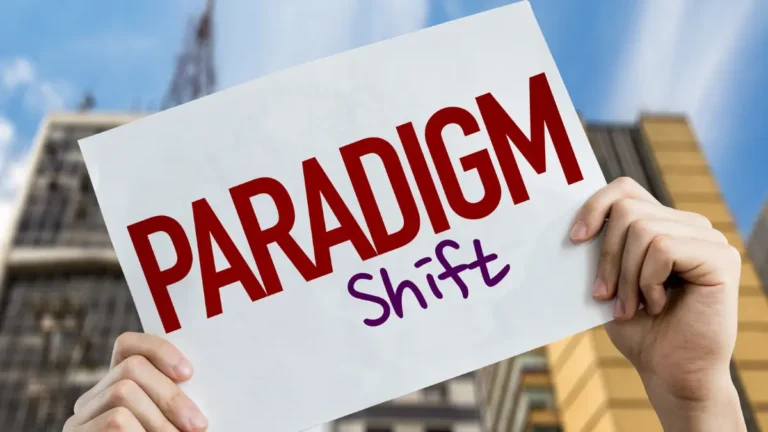For decades, the relationship between funders and the non-profits they support has followed a familiar script. A foundation, holding the power and the purse strings, dictates terms. A grantee, passionate but under-resourced, contorts its programs and reporting to fit rigid guidelines. It’s a dynamic built on compliance, not collaboration. But across Nigeria and the world, the ground is shifting. We are in the midst of The Great Funder-Grantee Power Shift, a quiet but profound revolution where grantees are no longer just applicants, but are successfully advocating to become true partners.
This isn’t just about changing attitudes; it’s about changing practice. It’s about moving from one-way transactions to two-way collaborations that are more respectful, effective, and ultimately, more impactful. This journalistic story explores how non-profits on the front lines are leading this charge.
A Story of Advocacy from Ibadan
Meet “Education for All Initiative” (EAI), a non-profit in Ibadan, Oyo State, dedicated to improving literacy outcomes in underserved primary schools. For years, they relied on a major annual grant that was highly restrictive. “The funding was tied to a specific metric: the number of textbooks distributed,” says David Adeleke, EAI’s Executive Director.
The problem was, EAI’s on-the-ground experience showed that textbooks alone weren’t enough. “Our real challenge was teacher training and after-school support,” David explains. “We were forced to pour resources into printing and distribution, which looked great on a report, but we knew we could achieve more if we had the flexibility to invest in the human element of education.”
The old model would have been to simply accept the terms. But armed with three years of their own impact data and a growing confidence, the EAI team decided to push back.
Changing the Conversation: From Reporting to Dialogue
Instead of submitting their standard renewal application, David requested a “strategy review meeting” with their foundation program officer. This simple change in language was the first step in reframing the relationship.
“We went in not as applicants, but as experts on the reality of education in our community,” David says. “We presented our data clearly, showing that while textbook numbers were up, the needle on actual student comprehension wasn’t moving as fast. Then, we presented a new, holistic proposal focused on intensive teacher training, funded by the same grant amount.”
They were advocating for unrestricted funding (or trust-based funding), a core tenet of this new movement. They argued that their team was best positioned to direct resources effectively. It was a risk. The foundation could have simply said no and moved on to a more compliant applicant.
But the program officer listened. The conversation shifted from “Did you meet your KPIs?” to “How can we best help you achieve our shared goal of improving literacy?” After several discussions, the foundation agreed to a pilot: for one year, the grant would be unrestricted. The result? EAI trained 50 teachers in new methodologies, launched three after-school reading clubs, and saw literacy scores increase by 40%—more than double the previous years’ growth.
The success of organizations like EAI is a powerful testament to the value of grantee expertise. This kind of strategic advocacy requires not only courage but also information. Knowing which funders are open to these conversations is critical. Platforms like grantsdatabase.org are becoming indispensable tools in this power shift, offering insights beyond official guidelines. Ambitious non-profits now use its funder review pages to see what other grantees say about a foundation’s flexibility and partnership style. Furthermore, resources like the advocacy toolkits found on the site can equip leaders like David with the language and data points needed to make their case effectively.
A Sector-Wide Movement
EAI’s story is not an isolated incident. It is a snapshot of a larger trend being championed by sector leaders. This move towards more equitable partnerships is about creating a system built on trust and mutual respect. According to a report by the National Committee for Responsive Philanthropy (NCRP), foundations that adopt grantee-centric practices see greater impact and foster more resilient non-profit partners.
The core principles of this shift include:
- Multi-year, unrestricted funding: Giving non-profits the stability and flexibility to plan for the long term.
- Simplified reporting: Moving away from burdensome, metric-heavy reports to dialogues focused on learning and strategy.
- Seeking and acting on feedback: Funders actively soliciting input from grantees on their own processes and strategies.
This movement represents the core of The Great Funder-Grantee Power Shift. It redefines the relationship as a partnership between two experts: the funder, an expert in resource allocation, and the grantee, an expert in implementing change on the ground.
The future of philanthropy is collaborative. As more grantees find their voice and more funders choose to listen, we move closer to a world where the power of partnership truly unlocks our collective potential to solve the world’s most pressing problems.
